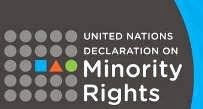Sunanda Deshapriya / UN Minority Rights Forum
INFORM Human Rights Documentation Centre, Colombo, Sri Lanka, would like to take this opportunity to highlight the series of attacks on Christian, Muslim and Hindu communities, particularly in 2012 and 2013, as highlighted by the UN High Commissioner for Human Rights, after her visit to the country in August this year. 227 attacks against Muslim places of worship and other institutions[i] have been recorded between January to July 2013 and 64 cases of attacks on Christian Churches and Pastors[ii] have been recorded between Januarys to September 2013. During the same period dozens of Hindu temples were destroyed in the North and Eastern provinces of Sri Lanka.
The actual number of incidents is much higher, as many incidents remain unreported, due to fear of reprisals and the lack of confidence in law enforcement agencies.
In some cases, the Police had watched by as men, including those in Buddhist Monks robes and identified as Monks, have physically attacked persons and properties of Muslims and Christians. In several other incidents, Police have refused to take action against suspects, even when clear evidence such as video footage and names of perpetrators were available.
The complicity of the state has been clear by their downplaying or denials of these systematic and widespread attacks, public statements by some powerful Government officials and Ministers and the absolute impunity as described above.
In recent incident, a senior Buddhist Monk who had objected to targeted attacks on Muslims was threatened and attacked by a mob led by a Buddhist Monk belonging to the Bodu Bala Sena group[iii]. The Police initially refused to take action on the Monks complaint, and had not provided protection to the Monk to attend to his official work afterwards despite written requests for protection.
Sri Lanka‘s constitution guarantees freedom of religion, but some Christian, Muslim and Hindu religious communities in Sri Lanka have been compelled to restrict and change their religious practices and even close down some places of worship.
The state’s present policy and practice appears partly, to be based on the constitutional provision that gives “foremost place” to Buddhism above and over other religions. This is particularly seen in the post war Northern province where new Buddha statues and Buddhist places of worship have been installed since the end of war in May 2009, even though there are very few Buddhists in these areas, except the military.
So far, persecuted religious minorities from Christian, Muslim and Hindu communities appear to have acted with remarkable restraint, depending on democratic and peaceful struggles to seek justice, protect themselves and their rights. However, the continued attacks and impunity points to the danger that Sri Lanka could once again find itself plunging into a more serious and violent religious conflict, less than 5 years after a bloody ethnic war had ended.
Decisive and immediate action by the state, particularly the Police to stop and prevent further attacks and ensuring accountability for past attacks is key to prevent more serious outbreak of religion based violence. It is also crucial to ensure all religions enjoy equal status in law, without any particular religion being given foremost place.
Statement delivered by Sunanda Deshapriya on behalf of INFORM Human Rights Documentation Centre at the Sixth session of the UN Forum on Minority Issues on “Beyond freedom of religion or belief: Guaranteeing the rights of religious minorities” on 26th Nov 3013
[iii] [iii]http://groundviews.org/2013/10/09/buddhist-monk-attacked-by-bodu-bala-sena-and-police-inaction/#comments

